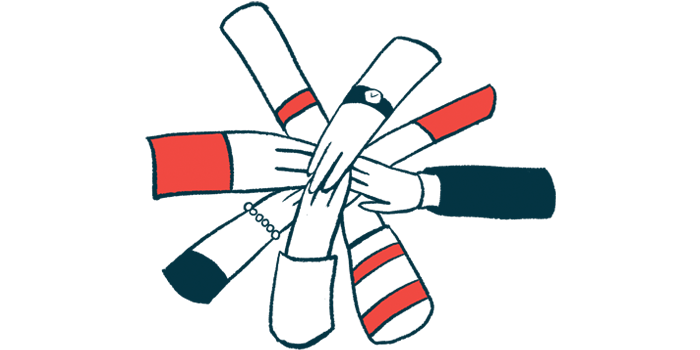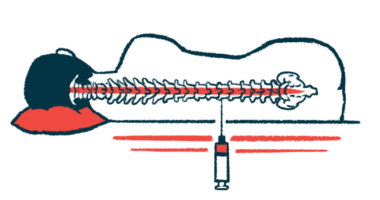Veterans Call for FDA Committee Meeting on NurOwn’s Benefits
Open letter from vets with ALS seeks meeting to discuss cell therapy

Veterans with amyotrophic lateral sclerosis (ALS) are calling for the U.S. Food and Drug Administration (FDA) to hold a public advisory committee meeting to discuss the benefits of NurOwn — an investigational cell-based therapy that military service members say has slowed their disease.
The request follows the regulatory agency’s recent decision not to review the stell cell therapy developed by Brainstorm Cell Therapeutics. In its decision, the FDA cited a lack of substantial evidence of efficacy in completed trials.
Now, in an open letter authored by 14 veterans with ALS and the daughter of a veteran who died from the disease — with support from the nonprofit advocacy group I am ALS — this group of service members and their families are urging the FDA to hold a public meeting where their voices can be heard.
Their letters echoes one written earlier this month by patients and the family members of participants who took part in NurOwn clinical trials. Those participants also reported meaningful benefits from the therapy and called for a meeting with the FDA to discuss their experiences.
“We too vow to keep speaking and demand that our country give us a right to be heard at an AdCom [advisory committee meeting] — where regulators, researchers and patients can have a scientific discourse about a therapy that could impact veterans’ lives, and the lives of our fellow Americans with ALS,” the group wrote in their letter, shared in an I Am ALS press release.
Letter follows FDA refusal to review NurOwn
NurOwn is a cell-based therapy in which a patient’s own mesenchymal stem cells are harvested from the bone marrow and matured in a lab. In this process, the cells secrete large amounts of signaling molecules that support nerve cell health.
The cells are then returned to the patient via injection into the spinal canal, where the treatment is thought to promote nerve cell repair and to slow ALS progression.
Brainstorm had tested its therapy in a Phase 3 trial (NCT03280056) involving 189 patients with quickly progressing ALS. Each received three injections of either NurOwn or a placebo every other month over a 28-week (about seven months) timeframe.
The company had planned to use data from the trial to support its application for regulatory approval from the FDA.
While top-line results showed the trial failed to meet its main goal of slowing disease progression compared with a placebo, Brainstorm noted that patients in the study had, on average, significantly more advanced disease than participants in Phase 3 trials of other treatments.
For some patients, their disease was so advanced that it wasn’t possible to meaningfully detect disease progression, the company argued.
Consistently, additional analyses excluding those more severely affected demonstrated that NurOwn could slow disease progression among patients with less advanced disease.
However, the FDA still issued a “refusal to file” letter, citing a lack of evidence of NurOwn’s effectiveness.
Now, upset patients and caregivers have requested an advisory committee meeting with the FDA, at which the experiences of those who benefited from the therapy could be shared with the agency and its scientists.
Veterans comprise 1 in 6 ALS deaths
In their letter, the military service members noted that one in six people who die from ALS is a veteran — with 1,055 ALS-related veteran deaths per year.
“When we volunteered to serve, we swore an oath to protect our country against all enemies,” the group wrote. “In our battle today, the enemy is ALS.”
The veterans’ letter shared the example of Navy pilot Matt Bellina, who received seven doses of NurOwn.
“I have regained the ability to stand on my own without assistance,” Bellina said in the letter. “My lung capacity is 37% higher than it was before my first injection, so I no longer need the assistance of a breathing machine. I have gained enough mobility in my arms to scratch my face and even take my glasses off. All of these are improvements from where I was before the treatment.”
The need for new and effective ALS treatments is particularly high among military service members like Bellina, who are at a higher risk of developing the neurodegenerative disease than those in the general population.
We expect the FDA … to equip people with ALS with the best weapons in the arsenal
Among post-9/11 veterans, the risk of ALS is nearly 4 times higher than in the general population, and these service members are seeing an ALS onset at younger ages. For Bellina, that meant retiring from the military at age 32.
The neurodegenerative disease was first recognized as a service-related disability in 2008, based on the efforts of Brigadier General Thomas Mikolajcik, who died from ALS in 2010. Mikolajcik’s daughter is one of the letter’s authors.
The veterans, noting the critical need for effective ALS therapies, wrote that they expect the FDA to “act with the broadest of regulatory flexibility.”
“We expect the FDA to hear the opinions of the best scientific minds … to listen to the neurologists who have witnessed how the enemy responds to NurOwn … to consider competing voices … to learn from ALS biomarker specialists … and to equip people with ALS with the best weapons in the arsenal,” the group wrote.
“As we are confronting the battle for our lives, it would be an affront to all that we sacrificed to deny us a voice in the dialogue about what weapons will be in our medical arsenal,” they wrote, adding, “Please do not abandon us on this ALS battlefield.”








